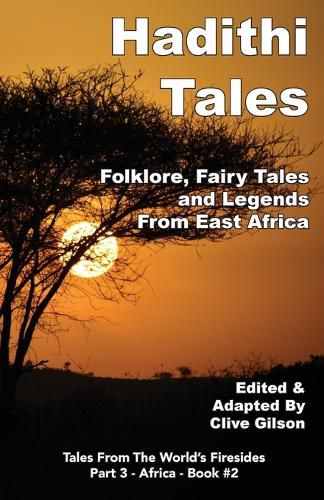Readings Newsletter
Become a Readings Member to make your shopping experience even easier.
Sign in or sign up for free!
You’re not far away from qualifying for FREE standard shipping within Australia
You’ve qualified for FREE standard shipping within Australia
The cart is loading…






This title is printed to order. This book may have been self-published. If so, we cannot guarantee the quality of the content. In the main most books will have gone through the editing process however some may not. We therefore suggest that you be aware of this before ordering this book. If in doubt check either the author or publisher’s details as we are unable to accept any returns unless they are faulty. Please contact us if you have any questions.
Folklore, fairy tales, myths and legends from East Africa
The seemingly simple art of storytelling is incredibly important in African societies. Storytelling helps all societies to understand core elements in their lives such as religion, morals, history, purpose social norms. The collective nature of oral storytelling also helps to cement bonds among generations and family groups, and is significant in the way that it helps people to share experiences and ideas. As with so many cultures the storytellers of Eastern Africa recount tales of heroes and ancestors. These heroes and forebears continue to influence the lives of the living in very real ways.
Oral traditions in East Africa cover both prose and verse forms, often portraying mythological or historical characters and can include tales of the trickster character. Storytellers in Africa sometimes use call-and-response techniques to tell their stories. Poetry, often sung, includes narrative epic, occupational verse, ritual verse, and praise poems of rulers and other prominent people. Praise singers, bards sometimes known as griots , tell their stories with music.
In general terms Africa has a hugely rich storytelling heritage. From Timbuktu alone, there are an estimated 300,000 or more manuscripts tucked away in various libraries and private collections, mostly written in Arabic but some in native languages such as Fula and Songhai. Many were written at the famous University of Timbuktu. The material covers a wide array of topics, including astronomy, poetry, law, history, faith, politics, and philosophy.
The wonderous thing about such a rich heritage, and such a long history of finding compelling ways to interpret the world, is that it creates a massive melting pot of full of ideas. Just a few of those ideas are what we have here in this small collection. As ever it has been a delight to discover and work with these stories. I hope you enjoy them.
$9.00 standard shipping within Australia
FREE standard shipping within Australia for orders over $100.00
Express & International shipping calculated at checkout
This title is printed to order. This book may have been self-published. If so, we cannot guarantee the quality of the content. In the main most books will have gone through the editing process however some may not. We therefore suggest that you be aware of this before ordering this book. If in doubt check either the author or publisher’s details as we are unable to accept any returns unless they are faulty. Please contact us if you have any questions.
Folklore, fairy tales, myths and legends from East Africa
The seemingly simple art of storytelling is incredibly important in African societies. Storytelling helps all societies to understand core elements in their lives such as religion, morals, history, purpose social norms. The collective nature of oral storytelling also helps to cement bonds among generations and family groups, and is significant in the way that it helps people to share experiences and ideas. As with so many cultures the storytellers of Eastern Africa recount tales of heroes and ancestors. These heroes and forebears continue to influence the lives of the living in very real ways.
Oral traditions in East Africa cover both prose and verse forms, often portraying mythological or historical characters and can include tales of the trickster character. Storytellers in Africa sometimes use call-and-response techniques to tell their stories. Poetry, often sung, includes narrative epic, occupational verse, ritual verse, and praise poems of rulers and other prominent people. Praise singers, bards sometimes known as griots , tell their stories with music.
In general terms Africa has a hugely rich storytelling heritage. From Timbuktu alone, there are an estimated 300,000 or more manuscripts tucked away in various libraries and private collections, mostly written in Arabic but some in native languages such as Fula and Songhai. Many were written at the famous University of Timbuktu. The material covers a wide array of topics, including astronomy, poetry, law, history, faith, politics, and philosophy.
The wonderous thing about such a rich heritage, and such a long history of finding compelling ways to interpret the world, is that it creates a massive melting pot of full of ideas. Just a few of those ideas are what we have here in this small collection. As ever it has been a delight to discover and work with these stories. I hope you enjoy them.